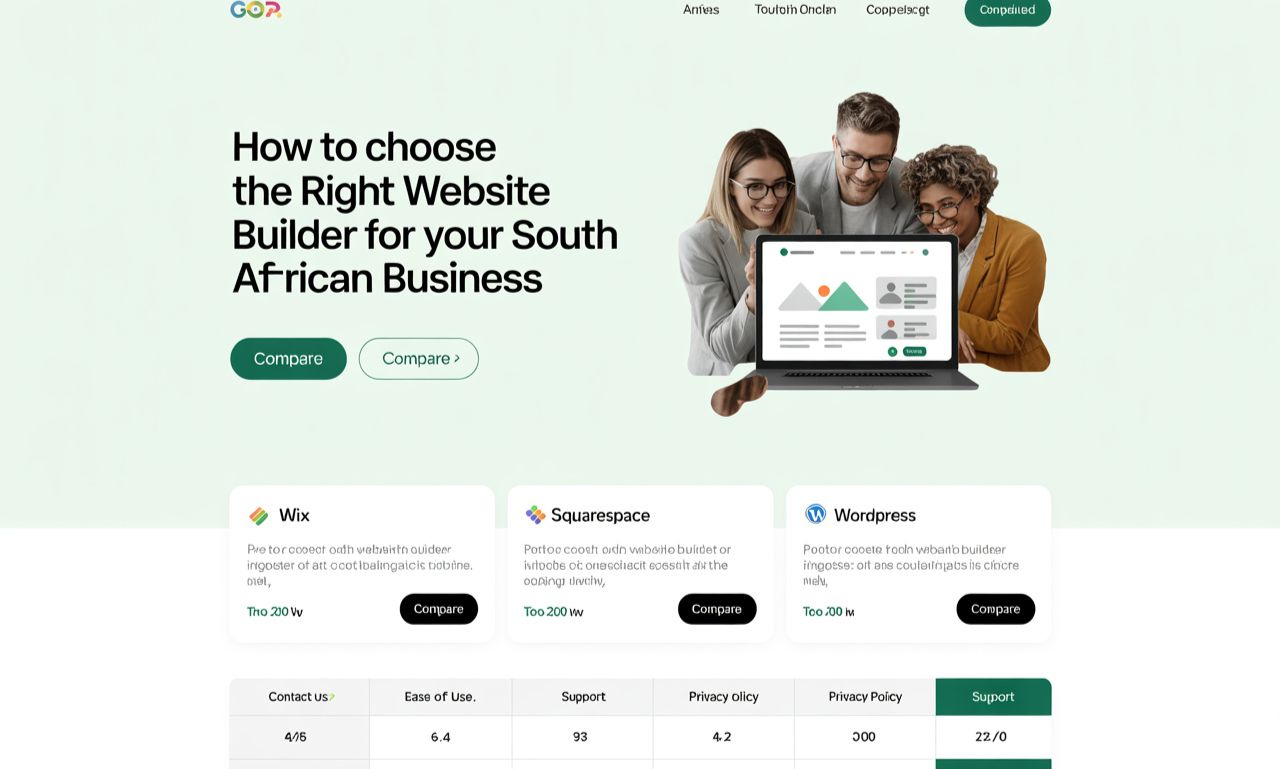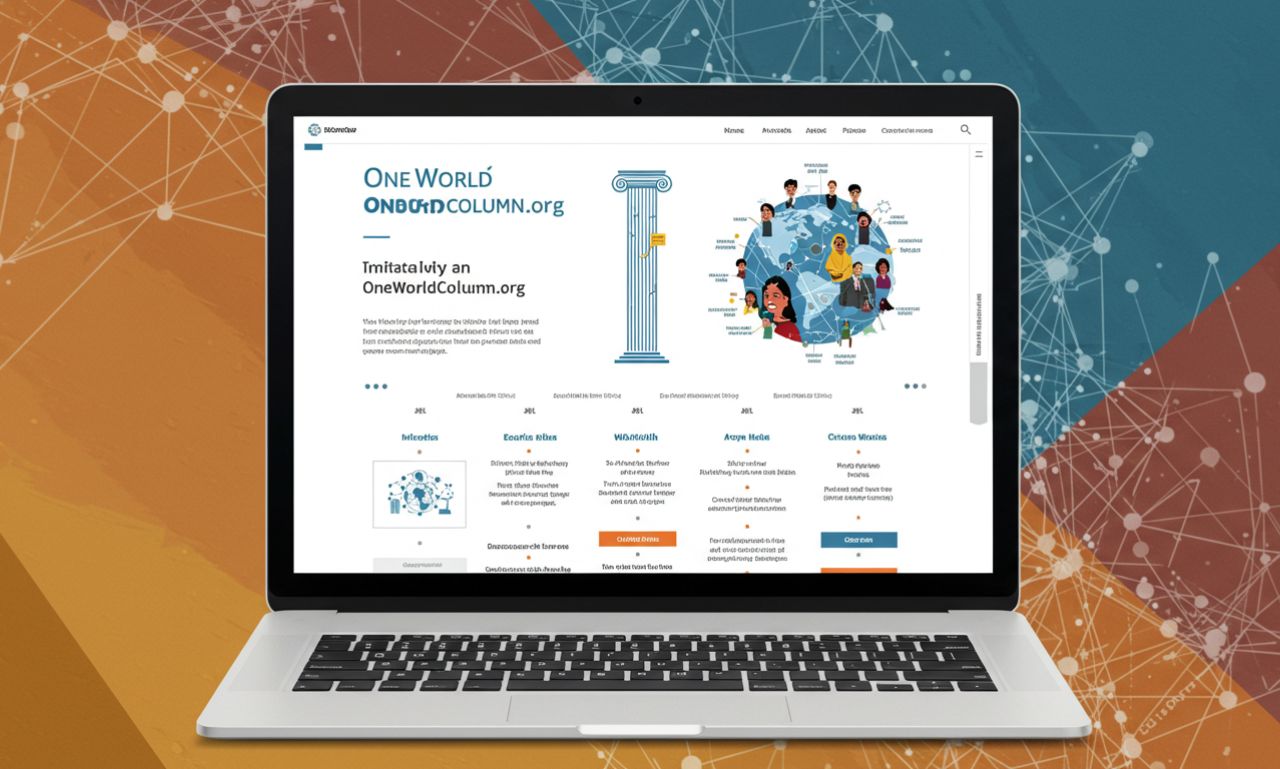Starting or growing a business in South Africa means you need a strong online presence to reach customers, drive sales, and build credibility. Whether you’re a startup owner in Cape Town or running a growing enterprise in Johannesburg, selecting the right tool to create your online storefront can make or break your digital success. This is where finding the ideal website builder South Africa becomes crucial for your business goals.
Understand Your Business Needs
Before exploring options, clarify what your website needs to achieve. Are you offering services, selling products, or showcasing a portfolio? A restaurant will need an online menu and booking system, while an eCommerce site requires secure payment processing. Knowing your goals helps narrow down the features you’ll need.
Ease of Use is Key
Choose a drag-and-drop website builder if you don’t have coding knowledge. These platforms are designed for beginners and allow you to create a professional-looking site quickly. Look for intuitive dashboards, real-time previews, and customizable templates. South African small business owners benefit from tools that don’t need a steep learning curve.
Mobile Responsiveness Matters
Over 80% of South Africans access the internet via smartphones. If your website isn’t mobile-friendly, you’re losing potential clients. Your chosen platform should offer responsive templates that adjust to all screen sizes, ensuring your site looks great on phones, tablets, and desktops.
Consider eCommerce Capabilities
For businesses planning to sell products or services online, the builder must support eCommerce. This includes shopping carts, payment gateways (especially local options like PayFast or SnapScan), inventory management, and delivery integration. Not all website builders offer the same level of eCommerce functionality—some are better suited to online shops.
Check for SEO and Marketing Tools
A website that looks good but doesn’t show up on Google won’t help you much. Choose a platform that includes built-in SEO features like custom URLs, meta descriptions, alt tags, and integration with Google Analytics. Bonus points if it supports email marketing and social media sharing directly from the dashboard.
Look at Design Flexibility
Your website should reflect your brand’s personality and appeal to your target audience. Builders with a wide range of customizable templates allow you to fine-tune the look and feel. Think about fonts, colors, and layout flexibility. Some platforms lock you into a fixed template after publishing, so check that beforehand.
Scalability and Growth Support
Your business will grow, and your website should grow with it. Consider whether the platform allows you to add new pages, blog sections, booking forms, or eCommerce features without needing to switch providers. Builders that allow plugin support or app marketplaces are usually more scalable.
Evaluate Customer Support and Resources
Support can be a lifesaver, especially when issues arise late at night. Choose a provider that offers multiple support channels—live chat, email, phone, or even a local office in South Africa. An active user community, how-to articles, and tutorial videos also make problem-solving easier.
Performance and Website Speed
Speed influences both user experience and Google rankings. South African hosting servers can make a difference, as can optimized templates. Ask yourself: does the builder use a content delivery network (CDN) or offer tools to compress images and cache pages?
Pricing and Value for Money
Budgets matter. Compare not just pricing, but what you get for your money. Some platforms might appear cheap but charge extra for features like email accounts, SSL certificates, or eCommerce tools. Others might offer an all-in-one package that saves you money in the long run. Always start with a free trial or money-back guarantee if you’re unsure.
Security Features You Shouldn’t Ignore
Cybersecurity is a big deal, no matter your business size. Your builder should offer free SSL certificates, regular backups, two-factor authentication, and protection against DDoS attacks. If you’re collecting customer data, this is non-negotiable.
Local Integration Support
A good website builder should integrate well with services used in South Africa, such as payment gateways, shipping providers, and CRM tools. If your builder lacks these, you might end up spending extra time or money customizing workarounds. Support for local plugins saves you a lot of trouble.
Test Before You Commit
Always test drive your builder. Use free trials to explore the interface, drag and drop elements, publish a test site, and evaluate customer support responsiveness. Some platforms may feel right until you start using them, and a free test is the best way to prevent regrets.
Check User Reviews and Community Feedback
You’re not the first South African entrepreneur choosing a website builder. Look up reviews on forums, social media, and YouTube. See what other users say about downtime, bugs, ease of use, and support. Sometimes, what looks great on paper doesn’t live up to expectations in real-world use.
Personal Experience Can Go a Long Way
A friend of mine runs a T-shirt printing business out of Durban and swears by a lesser-known builder because of its fantastic mobile support and simple online store tools. They didn’t go with the big names but instead chose what worked for them. And guess what? Website Digitals helped them out when they were stuck with templates. So don’t overlook options just because they’re not mainstream.
Final Thoughts
There’s no single best website builder for every South African business. What matters is finding one that aligns with your business type, budget, and future plans. Evaluate all factors—ease of use, SEO, mobile-friendliness, eCommerce capability, and local support—before deciding. A strong website is a long-term asset that pays off through customer trust, increased sales, and wider reach. Start smart, and your website will grow as your business does.











